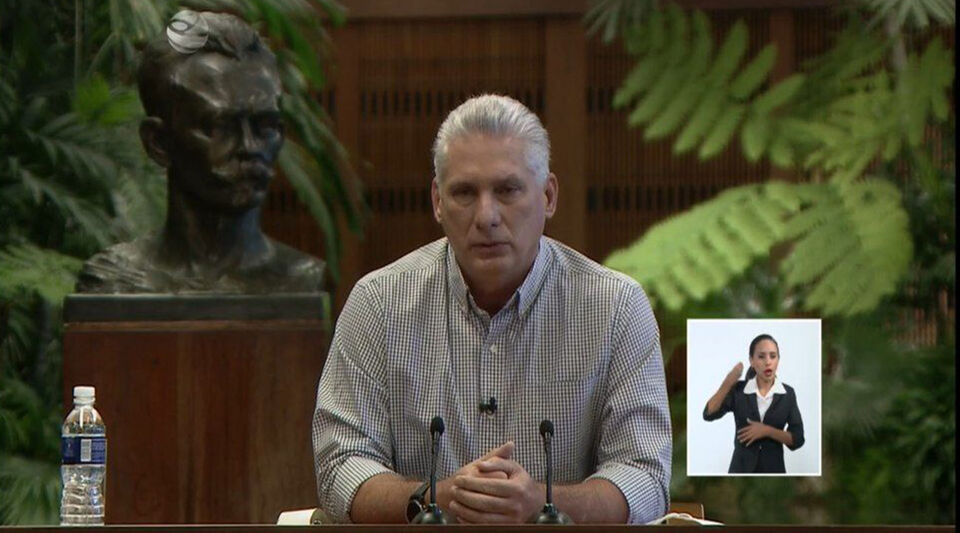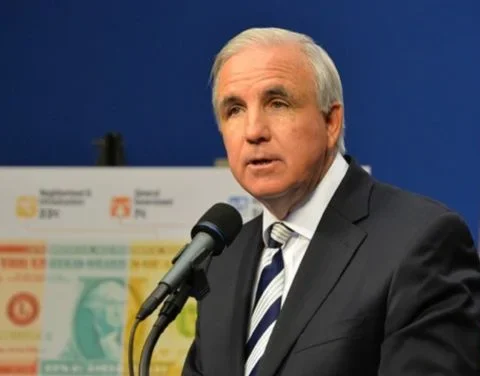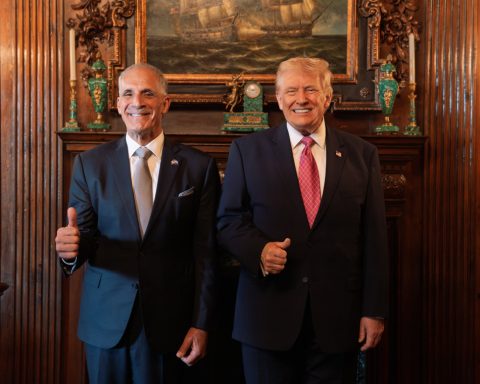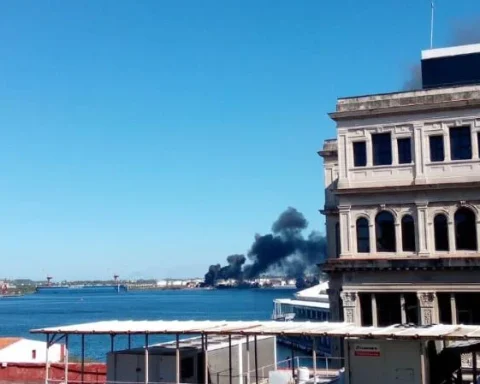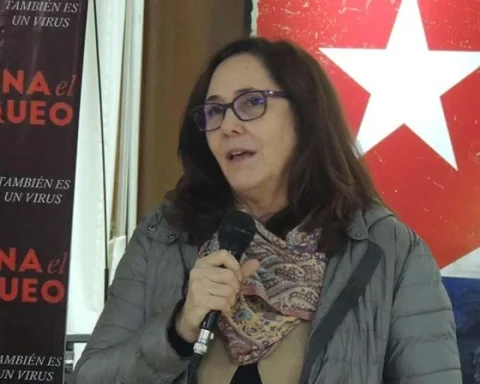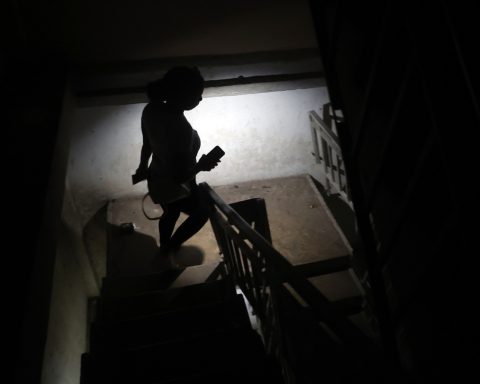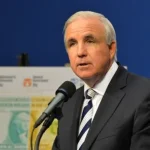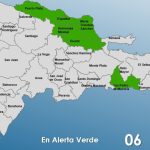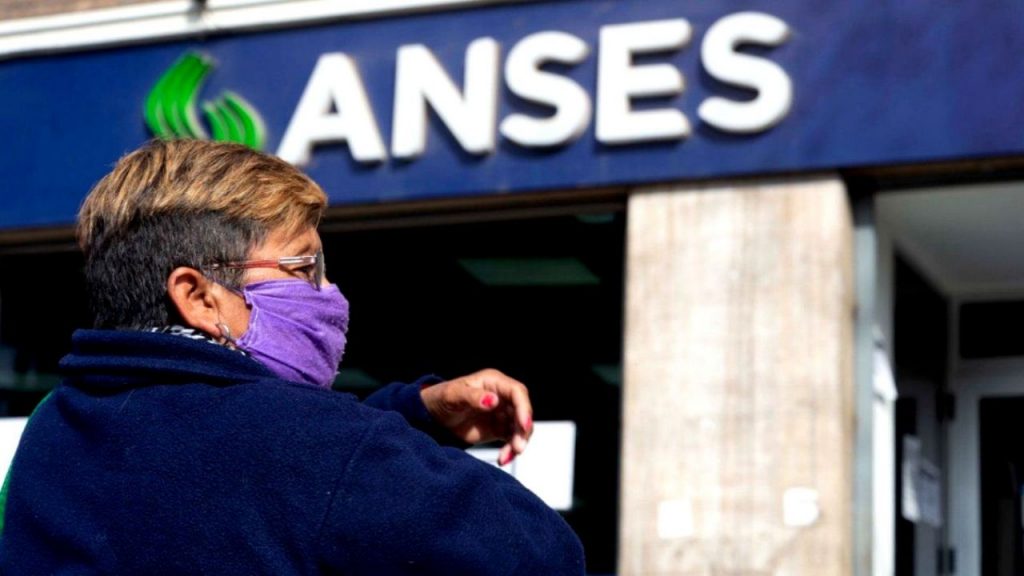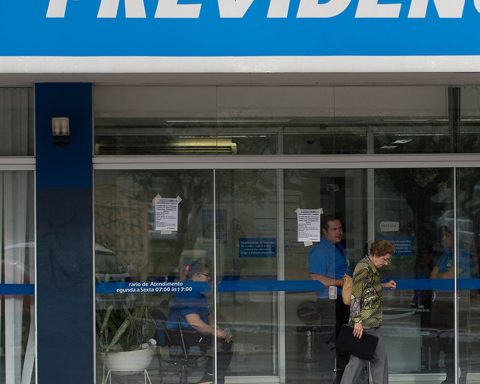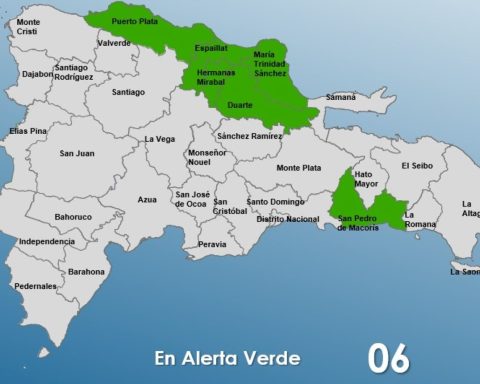In a television intervention, announced just a few hours before, Miguel Díaz-Canel addressed issues such as tourism and the pandemic this Friday, although the Civic March called for the next November 15 was the topic that generated the most interest in his extensive speech where he repeated the phrase “in peace” on several occasions to define the current situation on the Island.
After learning of his appearance, speculation soared: flexibility or toughness, said the pools, but Díaz-Canel chose to follow the official script. “We are a Revolution that would not survive the mistake of neglecting its defenses,” he stressed. “We are a society closed to pressure”, although it did not repeat the questioned “order of combat” that it launched on July 11 during the popular protests.
Without alluding to the Archipelago platform or the playwright Yunior Garcia Aguilera, main organizers of the marches next Monday in various cities of the country, Díaz-Canel spoke of “a whole media intention, an imperial strategy to try to destroy the revolution”, something that “does not take away our sleep” because “we are prepared to defend the revolution. “
But most of his speech was directed at the harsh months of the pandemic and the possibility of an economic recovery with the arrival of visitors after the reopening of the borders next Monday.
After learning of his appearance, speculation soared: flexibility or toughness, said the pools, but Díaz-Canel chose to follow the official script
“We have been facing very hard situations and moments,” Díaz-Canel began by saying in an intervention that, despite being announced as “live”, was recorded and in which he spoke of making a “count to honor and recognize” Cubans who lost their lives due to the pandemic. “Cuba deserves a celebration,” added the president.
“They have wanted to present us as a failed state,” he warned regarding the criticism that the official management received during the worst moments of the covid-19. “We are making the call to surpass it with our talent,” he stressed in relation to the US embargo, the recurring justification for the economic crisis that the island is going through.
“This is a harvest time from what we have sown,” emphasized the 61-year-old engineer before giving way to a question conference from the official press. “We cannot trust ourselves,” acknowledged the ruler in view of the reopening of the borders, although he emphasized that “we have controlled the disease.”
The reopening of borders is an issue that has generated conflicting opinions. On the one hand, the island’s economy urgently needs the entry of foreign currency that would arrive with visitors, but the unfortunate experience of the previous opening of flights at the end of last year and its negative epidemiological impact arouses many suspicions.
“We are predicting that there will be an immediate increase in tourism but not an immediate recovery,” he acknowledged. “They will find a country at peace,” said Díaz-Canel in relation to the travelers who, from the middle of this month, could begin to increase their presence on Cuban streets.
Most of his speech was directed to the harsh months of the pandemic and the possibility of an economic recovery with the arrival of visitors after the reopening of the borders next Monday
“Our economy will gradually recover (…) in the midst of all these circumstances we have approved the new economic actors. The approval of the new forms of management, both state and non-state, is flowing at a good pace … I would say that this framework sooner or later will give a dynamic in the supply of services and in the supply of goods to our population. “
He supported his optimism that as of November 15 the sequence of flights “will exceed half a hundred.” In the remainder of the year, he estimated, “receive a number of tourists that is almost 50%” of those who have arrived this year.
And the repeated argument was not lacking: “What we have faced has had as an additional element of great rigor, the cruel, criminal policy of Yankee imperialism against Cuba, which tried to take advantage of this moment where there were also uncertainties to turn it all around. the nuts of the blockade, to defame, to slander, “he repeated.
However, unlike the speech he gave on July 11, a few hours after the first protests were registered and in which Díaz-Canel called the communists to take to the streets, this time he avoided such calls, although you report it point to an increase in repression against possible protesters in recent days.
________________________
Collaborate with our work:
The team of 14ymedio He is committed to doing serious journalism that reflects the reality of deep Cuba. Thank you for joining us on this long road. We invite you to continue supporting us, but this time becoming a member of our journal. Together we can continue transforming journalism in Cuba.
